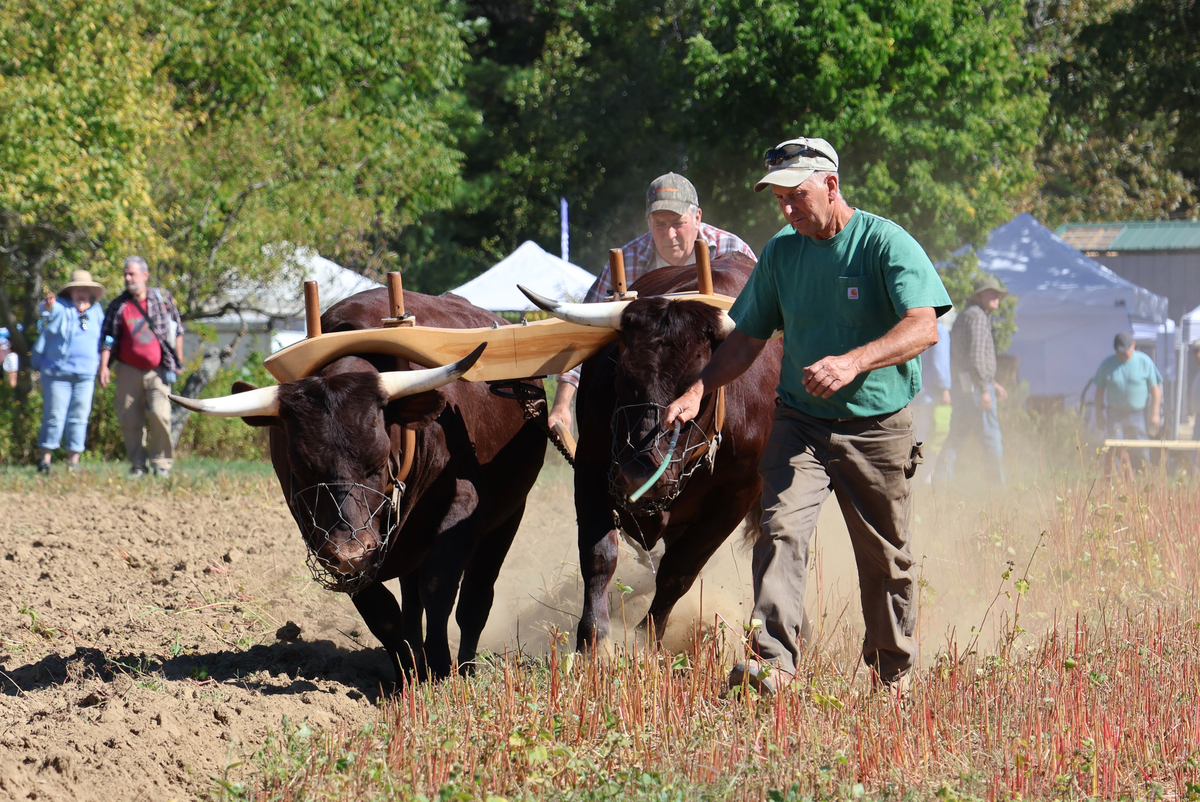
Farmers, gardeners, homesteaders and the agriculturally curious converged in Unity again on Friday for the first day of the annual Common Ground Country Fair.
The major fall event hosted by the Maine Organic Farmers and Gardeners Association, now in its 48th year, aims to celebrate rural living.
Visitors bought local produce, tried traditional crafts, ate beans cooked in a hole, contra danced, watched demonstrations from working animals and attended talks on subjects from creating ash baskets to preparing for death at home.
Attendance has broken records in recent years at the fair, which over time has grown from a small gathering in Litchfield to an event at the organization’s Unity headquarters that last year drew almost 70,000 people over three days.
Final attendance numbers weren’t available Friday afternoon, but with warm, sunny weather, the fairgrounds appeared full, and traffic was backed up from the entrance during the day.
For longtime participants, the bigger crowds have been a significant change, but indicate something encouraging about the event.
Jacqui Robb, of Belfast, first attended the fair around 1978; she comes back to see friends, look at livestock and learn from others about gardening, sustainability and self-sufficiency.
“Here, you can go, ‘This is a honkin’ cabbage!’ and talk to who grew it,” she said in the exhibition hall Friday, gesturing to a large cabbage that had been entered for judging. That in-person community is valuable for Robb.
The fair is “huge” compared to what she remembers in the 1970s, she said, and the food has improved. It is harder to navigate now — traffic can back up significantly and the grounds were busy Friday — but she finds the increase in attendance encouraging.
“The more people that are inspired at this fair, the better,” Robb said.
A younger attendee from Swanville, Susannah Koch, was exhibiting in a livestock barn with her sheep from Red Oak Farm to talk about butchering animals at home and spinning their wool. She grew up showing animals at fairs in southern Maine, but this is the only one she attends as an adult, she said.
That’s because of the focus on sustainability, along with people who are interested in having control over what they eat and how it was raised, she said. Another point in its favor is its emphasis on education rather than midway rides.
Rhonda Welcome, a pony club leader from Lubec, has been part of the fair for more than three decades. She recalled it hosting booths from both People for the Ethical Treatment of Animals and the Maine Trapper’s Association, whose members would talk to each other because they had a shared interest in Maine.
She said the growth of the fair can sometimes be more challenging, but she’s encouraged that it means people want what it has to offer.
“More people are interested in where food comes from, and how we interact with it,” she said.



